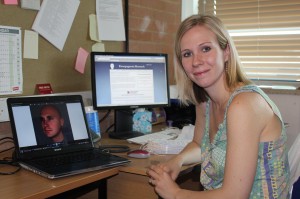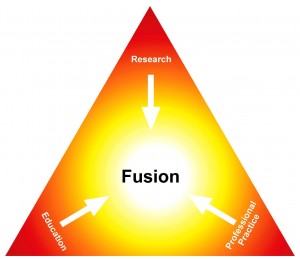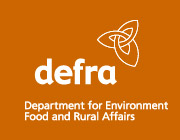 Background
Background
PET is a technology of key importance for understanding physiology and pharmacological mechanisms and for translation of discoveries through to the clinic. PET imaging techniques have good potential to provide high impact in both diagnosis and therapy across a range of diseases.
This call is for proposals of up to four years in duration for neurosciences research that depends on the use of PET imaging. The goal is to address continuing shortfalls in specialist post-doctoral training to enable skills development for PET imaging. The call for proposals follows up on a previously successful pilot scheme which made three awards in 2009, which sought to address two principal challenges for PET imaging in neuroscience research.
These were that:
- Major academic centres are establishing new PET centres in the UK even though difficulties already exist in recruiting scientists with the necessary radiochemical, analysis or applications expertise;
- It is difficult to develop or gain access to novel molecular probes for innovative applications of PET imaging.
These issues remain pertinent for the field, and this new call will seek to build further capacity in the field. Those Institutions successful under the pilot scheme will be welcome to bid under this open competitive call, where they will be assessed on an equal basis with other applicants. There is no assumption that the awards previously made will automatically continued.
Through the MRC the community is working with the MHRA to find ways to address the regulatory issues experienced by the community; this experts group includes representation from many UK Institutions engaged in PET research.
Objectives and remit
The scheme is being run through the MRC Neurosciences and Mental Health Board (NMHB) and is intended to allow suitably qualified post-doctoral researchers to both train in specialist PET-related disciplines and then potentially contribute towards the development of novel PET molecular imaging methodologies (for example, new molecular probes) that will benefit the neurosciences. It is hoped that at least four awards each employing at least one post-doctoral research assistant will be made.
To be employed on these grants, the trainee PET researchers recruited by the Institution are expected to have a clinical or non-clinical PhD in one or more of the following scientific disciplines:
- chemistry
- neuropharmacology
- mathematics
- biological sciences with experience of working in clinical imaging or with animal or cellular models
Key elements will be:
- The provision by the host institution of a good training environment; and
- Evidence that following an appropriate period of skills training, the trainee will have opportunities for independent research using PET imaging in an academic or industrial scientific environment.
Each award will be made for up to four years, with at least two years specifically designated for appropriate skills training relevant to PET. After training, the following years would be designated for application of these acquired skills to a neuroscience imaging problem. These time periods are suggested as a guideline only; the NMHB will be flexible if a good case is made for a different approach to suit a particular project, candidate or environment.
Further details are provided, under general features, training requirements and scientific details.
Funding available
£2m is available from the MRC’s Neuroscience and Mental Health Board. Applications will be considered by NMHB at its meeting to be held on 6th and 7th March 2013. Applications must be submitted via the JeS system by 4pm on the 25th September 2012. Applications should be submitted as a Standard Proposal, a Research Grant, to the NMHB September call and should include prefix to the title – PET Call.
Interaction with industry partners will be desirable, and preference will be given to applications that can offer evidence of meaningful collaboration with partners who are able to complement the bid and strengthen the training component of the award or otherwise enhance potential for success.
Awards may be made either to the same or to different academic centres – this has not been pre-specified and will depend upon the quality of the proposals.
For more information on General Features, Training Requirements, Scientific Details, Networking, and Advice to Applicants, please click here
Assessment process
Applications must be submitted via the JeS system by 4pm on the 25th September 2012. Applications should be submitted as a Standard Proposal, a Research Grant, to the NMHB September call and should include prefix to the title – PET Call.
Applications will be assessed by reviewers in November and December 2012. A specially convened review panel will meet to make triage decisions on the applications. Following the triage meeting, applicants will be contacted with the outcome. Applications will either be declined or go forward for consideration at the Neurosciences and Mental Health Board (NMHB) in March 2013. The Panel’s triage decision is final and not open to appeal. For those proposals going forward to the Board, applicants will be invited to respond to the referee comments. The timeline for this will be relatively tight.
NMHB members will receive the applications, external reviewers’ comments and the applicant’s response. Awards by the Board at the March meeting will be made in competition with other proposals at the Board and only research proposals of high quality will be funded.
Final decisions will be made by the Board and applicants will be informed of the decision and provided with Board feedback in March 2013. The Board’s decision is final and not open to appeal.
In addition to using the standard assessment criteria, where appropriate, key considerations for the Panel will be:
- Eligibility for the call;
- Quality and suitability of the research environment and of the facilities for the proposed work;
- Quality and suitability of the general training environment(s)
- Arrangements for mentoring of the post-holder once the grant-funded post is offered and accepted
- Evidence that following the award, the trainee(s) will have opportunities for independent research using PET imaging in an academic or industrial scientific environment
- Suitability of the specific training proposal and project(s) for developing the trainee’s skills and career;
- Potential importance of the specific research being conducted as part of the training;
- Strength and clarity of any collaboration and the potential for collaborations to strengthen the PET community in the neurosciences
- Value for money.
If you have a query about this call please email: Joanna Jenkinson
E-mail: joanna.jenkinson@headoffice.mrc.ac.uk
The RKE Operations team can help you with your application.
 This scheme is for academic scientists who want to work on a collaborative project with industry and for scientists in industry who want to work on a collaborative project with an academic organisation.
This scheme is for academic scientists who want to work on a collaborative project with industry and for scientists in industry who want to work on a collaborative project with an academic organisation.








 The Large Awards Scheme makes awards of £10,000 to £100,000 for projects which are expected to have “significant regional or national impact”
The Large Awards Scheme makes awards of £10,000 to £100,000 for projects which are expected to have “significant regional or national impact”

 Engineering and Physical Sciences Research Challenges in Geological Storage for CCS (PDF 88KB)
Engineering and Physical Sciences Research Challenges in Geological Storage for CCS (PDF 88KB)












 Seeing the fruits of your labour in Bangladesh
Seeing the fruits of your labour in Bangladesh Exploring Embodied Research: Body Map Storytelling Workshop & Research Seminar
Exploring Embodied Research: Body Map Storytelling Workshop & Research Seminar Marking a Milestone: The Swash Channel Wreck Book Launch
Marking a Milestone: The Swash Channel Wreck Book Launch No access to BRIAN 5-6th February
No access to BRIAN 5-6th February ECR Funding Open Call: Research Culture & Community Grant – Application Deadline Friday 12 December
ECR Funding Open Call: Research Culture & Community Grant – Application Deadline Friday 12 December MSCA Postdoctoral Fellowships 2025 Call
MSCA Postdoctoral Fellowships 2025 Call ERC Advanced Grant 2025 Webinar
ERC Advanced Grant 2025 Webinar Update on UKRO services
Update on UKRO services European research project exploring use of ‘virtual twins’ to better manage metabolic associated fatty liver disease
European research project exploring use of ‘virtual twins’ to better manage metabolic associated fatty liver disease